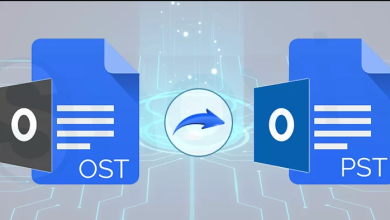Maximizing Success with Performance Settlements

Introduction
In the complex and dynamic world of business, performance settlements have emerged as a crucial component of compensation management. Understanding the nuances of performance settlements is essential for fostering a culture of excellence and motivation. In this article, we will explore the concept of performance settlements, their importance, and the best practices for designing, implementing, and managing effective performance-based compensation programs.
Performance Settlements Defined
Performance settlements often referred to as performance-based compensation or performance pay. Are monetary rewards or bonuses given to employees based on their individual or team performance. Performance settlements are contingent upon achieving specific performance goals or targets. The primary aim of performance settlements is to align employee efforts and outcomes with organizational objectives.
The Importance of Performance Settlements
Performance settlements play a significant role in shaping the dynamics of an organization. Here’s why they are crucial:
Motivation: Performance settlements serve as powerful motivators. They encourage employees to set and meet high standards, fostering a culture of excellence.
Alignment: By tying compensation to specific performance metrics. Organizations ensure that employees’ efforts are aligned with the company’s strategic goals. Effective performance settlements can attract and retain top talent. Employees understand that their compensation is directly linked to their performance. Which promotes accountability and responsibility.
Types of Performance Settlements
Performance settlements come in various forms, each suited to different roles, industries, and business models. Some common types of performance-based compensation include:
Bonuses: Lump-sum payments typically awarded annually or on a project basis to reward exceptional performance. These can be based on individual, team, or company-wide achievements.
Commissions: Common in sales and marketing roles, commissions are calculate as a percentage of sales revenue generated by the employee. The more they sell, the more they earn.
Profit-Sharing: Employees receive a share of the company’s profits based on predetermined formulas. This is typically distributed annually or at the end of the fiscal year.
Merit-Based Pay: Increases in base salary that are awarded base on individual or team performance assessments. These can be given annually or more frequently.
Best Practices for Effective Performance Settlements
Designing and managing effective performance settlements requires a thoughtful and strategic approach. Here are some best practices to consider:
Set Clear and Measurable Goals: Performance goals should be specific, measurable, achievable, relevant, and time-bound (SMART).
Fair and Transparent Criteria: Establish fair criteria for performance assessment. Employees should feel that their evaluations are based on objective standards, not favoritism.
Regular Performance Reviews: Conduct regular performance reviews to provide feedback and track progress. This allows for timely recognition of achievements and areas for improvement.
Must read: Emerging Trends in University Email List Management
Challenges in Performance Settlements
Common challenges in implementing performance-based compensation programs include:
Subjectivity: Evaluating and measuring performance can be subjective, leading to disputes or perceptions of bias.
Overemphasis on Short-Term Results: Overemphasizing short-term results can lead to employees neglecting long-term strategic goals.
Employee Disengagement: If the criteria are perceived as unattainable or unfair. By employees may become disengaged and less motivated.
The Future of Performance Settlements
The landscape of performance settlements is evolving with changing workplace dynamics and technological advancements. Here are some potential trends for the future of performance-based compensation:
Personalized Compensation Plans: Tailored compensation plans based on individual skills, preferences, and goals to maximize employee motivation and satisfaction.
Real-Time Performance Monitoring: Advanced technology will enable real-time tracking and assessment of employee performance, allowing for immediate feedback and adjustments.
Outcome-Based Metrics: A shift towards outcome-based metrics. By where performance is measure by the impact of an employee’s. Work on the organization’s bottom line.
Equity and Inclusivity: Efforts to ensure fairness and equity in compensation, addressing pay gaps and promoting inclusivity in the workplace.
Data-Driven Insights: Greater reliance on data analytics to evaluate and predict employee performance and the effectiveness of compensation plans.
Conclusion
Performance settlements are a dynamic and essential component of modern compensation management. They can motivate employees, align their efforts with organizational objectives, and foster a culture of excellence. Ensuring they are fair, transparent, and well-communicated. The future of performance settlements promises increased personalization, real-time monitoring, and data-driven insights.
Must read: 10 Best Vape Mods for Cloud Chasers



